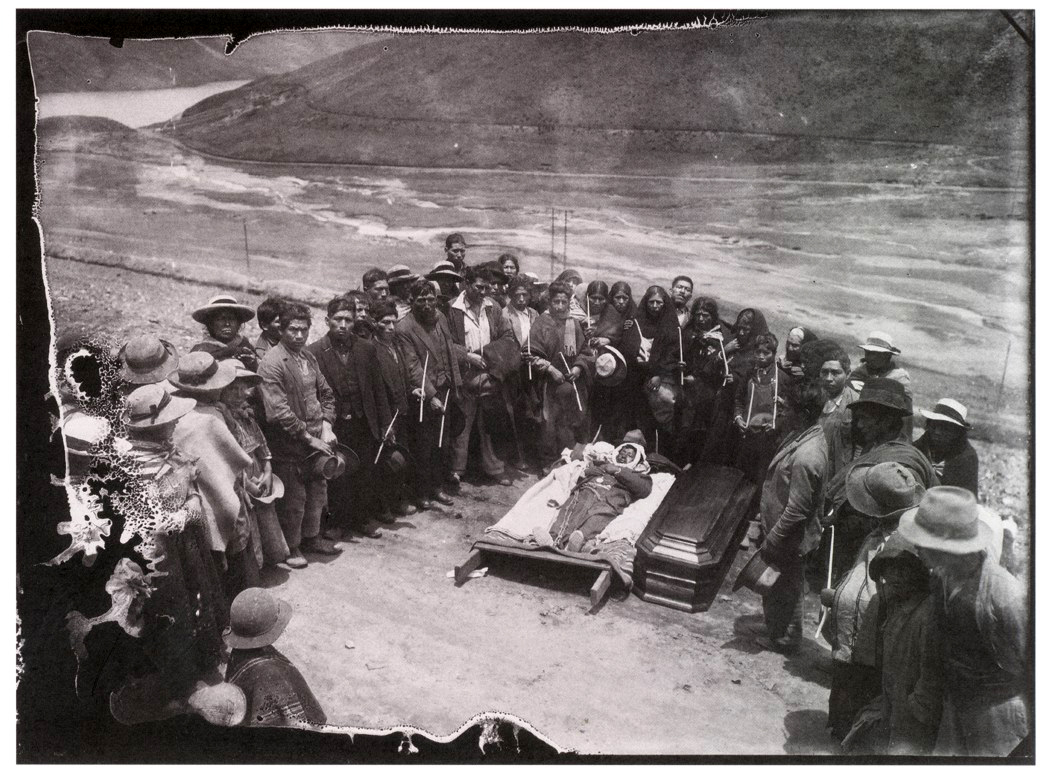“Veins of Conflict: Bodies and the Environment in Peru’s Copper Circuit, 1884-1930”
Juan Rubio, postdoctoral research associate at Effron Center for the Study of America, will present “Veins of Conflict: Bodies and the Environment in Peru’s Copper Circuit, 1884-1930” at 4:30 p.m. Thursday, April 27, in Morrison Hall, Room 224.
In the early 20th century, at a time when the world was rapidly electrifying, the rise of industrial copper mining in central Peru produced a series of environmental conflicts. Mining depleted water sources, smelter smoke altered the ecology of the valleys, and underground work environments became toxic. This talk will examine the struggles of Indigenous migrant workers in the central highlands of Peru as window into these broader processes of environmental change, capitalist exploitation, and embodied resistance. Through the lens of theories of transcorporeality, it will emphasize the importance of different kinds of bodies (the bodies of workers, bodies of water, animal bodies, and different kinds of imagined bodies) in shaping racial and labor politics in early 20th century Peru.
Juan Manuel Rubio is a scholar of capitalism, labor, and the environment. His work focuses primarily on the history of the mining industry and the struggles of those touched by its environmental legacy. He is currently working on a book about a series of environmental conflicts connected to the rise of industrial copper mining in central Peru (1880-1930). In addition to studying the social history of miners, mine-owners, transnational capitalists, and Indigenous communities during this period, Rubio researches the impact of the mining industry on disadvantaged communities today. Through community-based collaborations with public health scholars and environmental activists, Rubio is doing scientific research on the sources of lead contamination in California and its connection to histories of capitalism, corporate science, and environmental racism.
This event is organized by the Effron Center for the Study of America with co-sponsorship by HMEI, the Department of Anthropology and the Program in Latin American Studies.
- This event has passed.
“Veins of Conflict: Bodies and the Environment in Peru’s Copper Circuit, 1884-1930”
Wed, May 10, 2023 ・ 12:00 PM - 1:30 PM
Morrison Hall, Room 224


Juan Rubio, postdoctoral research associate at Effron Center for the Study of America, will present “Veins of Conflict: Bodies and the Environment in Peru’s Copper Circuit, 1884-1930” at 4:30 p.m. Thursday, April 27, in Morrison Hall, Room 224.
In the early 20th century, at a time when the world was rapidly electrifying, the rise of industrial copper mining in central Peru produced a series of environmental conflicts. Mining depleted water sources, smelter smoke altered the ecology of the valleys, and underground work environments became toxic. This talk will examine the struggles of Indigenous migrant workers in the central highlands of Peru as window into these broader processes of environmental change, capitalist exploitation, and embodied resistance. Through the lens of theories of transcorporeality, it will emphasize the importance of different kinds of bodies (the bodies of workers, bodies of water, animal bodies, and different kinds of imagined bodies) in shaping racial and labor politics in early 20th century Peru.
Juan Manuel Rubio is a scholar of capitalism, labor, and the environment. His work focuses primarily on the history of the mining industry and the struggles of those touched by its environmental legacy. He is currently working on a book about a series of environmental conflicts connected to the rise of industrial copper mining in central Peru (1880-1930). In addition to studying the social history of miners, mine-owners, transnational capitalists, and Indigenous communities during this period, Rubio researches the impact of the mining industry on disadvantaged communities today. Through community-based collaborations with public health scholars and environmental activists, Rubio is doing scientific research on the sources of lead contamination in California and its connection to histories of capitalism, corporate science, and environmental racism.
This event is organized by the Effron Center for the Study of America with co-sponsorship by HMEI, the Department of Anthropology and the Program in Latin American Studies.







